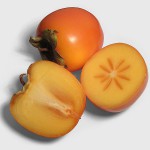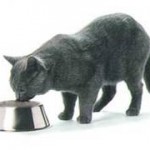 We are calling on Food Standards Australia New Zealand (FSANZ) to halt all further approvals of food irradiation and retain and strenghen the obligation on producers to label irradiated products. We are calling on our supporters to write to their local members and health ministers ask for the same. Consumers don’t want to eat irradiated food and current labelling requirements are inadequate.
We are calling on Food Standards Australia New Zealand (FSANZ) to halt all further approvals of food irradiation and retain and strenghen the obligation on producers to label irradiated products. We are calling on our supporters to write to their local members and health ministers ask for the same. Consumers don’t want to eat irradiated food and current labelling requirements are inadequate.
Below is the text of our letter outling the reasons that FSANZ should halt food irradiation approvals. You can find your state health minster’s details here Ministerial Council details
Dear Member of Parliament,
We are writing with great concern regarding the current push to both expand food irradiation in Australia and New Zealand and at the same time weaken labelling requirements for irradiated foods.
As an elected official, we call on you to urge your state’s representatives, as well as federal MPs, on the Ministerial Council to review and reject Application A1038 for the Irradiation of Persimmons.
On July 6, FSANZ announced its intention to approve Application A1038 for the irradiation of persimmons. The Application has now been handed over to the Ministerial Council for consideration. The Council has 60 days to call for action on the matter or the Application will be passed automatically in to law.
Despite being titled “Application A1038 for the Irradiation of Persimmons”, proposed within this Application were a series of major changes to labelling regulations which were not part of the original Application. The public was severely disadvantaged in its ability to respond to these proposals as neither the title nor the “fact sheet” on FSANZ’s website indicated that such regulatory changes were being considered.
For this and many other reasons, FSANZ’s approval is highly flawed and must be stopped. Irradiated food has not been proven safe. Major changes to food labelling regulations should entail an application to amend the Standard, involve rigorous public consultation, and should be processed separately to other matters.
While FSANZ has not approved all of the labelling changes proposed, its approval leaves Australia and New Zealand in a situation in which the labelling requirements for irradiated food are unclear and are not in line with international standards.
The Ministerial Council should:
- Immediately reject all changes to food labelling regulations included in this Application and require FSANZ to initiate a separate and formal round of investigation and public consultation regarding changes to food labelling regulations if an application to do so has been received.
and
- Reject the Application as the public health and safety of irradiating persimmons has not been adequately demonstrated and cannot be guaranteed.
Persimmons should not be irradiated. Despite industry claims, food irradiation has not been proven safe. Irradiation is known to deplete vitamin and nutritional content of food and to create “radiolytic” products, such as benzene, peroxides and cyclobutanones.
Between 2008-2009, up to 100 Australian cats developed neurological disorders linked to eating irradiated cat food. The irradiation of cat food is now banned in Australia – but the government is considering expanding the list of approved irradiated foods for humans. While irradiation has been accepted as the root of the problem, the exact cause of the disorder has not yet been pinpointed. Until the cause has been identified, a risk to humans and other animals can not be ruled out. FSANZ can not guarantee the safety of irradiated foods. We believe that the ban on the irradiation of cat food should be extended to all food for human and animal consumption.
FSANZ’s approval is a failure of duty of care to the public and food producers at home and overseas.
Claims that Australia has a safe track record with irradiated food are misleading. FSANZ states that there have been no health consequences associated with the consumption of foods already approved for irradiation in Australia and New Zealand. This is disingenuous, as few of these products are yet on the market in Australia and New Zealand meaning that Australians and New Zealanders do not have a yet have an assessable history of consuming irradiated foods. While no research is presented, or as far as we know available, regarding the safety of Australian and New Zealanders consuming irradiated foods, research and evidence is available regarding the sickness in Australian cats and problems with horses in Australia after eating feed irradiated for quarantine purposes.
FSANZ’s disregard for the potential cumulative impact of consuming an irradiated diet, is highlighted by the fact that FSANZ claims that vitamin and nutritional depletion of irradiated persimmons is insignificant as persimmons make up only a small percentage of the Australian and New Zealand diet. With herbs, spices, and some tropical fruits already approved in Australia and New Zealand, and other irradiation applications already in the pipelines, it is highly irresponsible for FSANZ to make irradiation approvals in isolation. The claim that irradiated foods have been safely consumed for many years is a promotional statement – and not a scientific fact. No long term studies on the consumption of an irradiated diet have been conducted – anywhere.
FSANZ’s approval also fails both Australian producers and overseas consumers. Most of the irradiated persimmons will be for international trade – to countries where persimmons are more commonly eaten. In acknowledging the vitamin and nutritional depletion of irradiated persimmons, FSANZ states that it is beyond its scope of responsibility to make dietary or health risk assessment regarding overseas markets. While claiming that the irradiation approval is a “trade-enabling” act, FSANZ takes no duty of care for the potential health impacts on Australia and New Zealand’s trading partners.
Furthermore, as “trade enabling” acts, this approval and all irradiation approvals have the potential to be detrimental to Australia and New Zealand farmers. While approvals may facilitate export of Australian products to some countries, they also facilitate the importation of irradiated produce from overseas. The case of persimmons is of note as the claim is that irradiation will allow export to SE Asian markets. The largest producer and consumer of persimmons is China. China and other SE Asian nations have the potential to produce persimmons on much greater scale and much more cheaply that Australia and New Zealand. China and SE Asia also do not require irradiation as a trade protocol. However, allowing the irradiation of persimmons will see those markets able to export cheaply produced irradiated persimmons to Australia and New Zealand – and refusing entry would then be seen as a barrier to trade. The cost of flooding of Australian and New Zealand markets with cheap irradiated imports would be far great than any potential gain from expanding exports.
Finally, there is no technological justification for the irradiation of persimmons as no market currently requires persimmons to be irradiated. There are numerous alternatives to irradiation, even for fruit fly disinfestation. Australia should, therefore, be upholding its reputation as a producer of quality products by promoting its potential for producing clean and wholesome food – free from the use of irradiation and other harmful technologies.
Problems with labelling:
As mentioned above, promotional material regarding this Application did not clearly state that the Application included an overhaul of labelling regulations; the proposed labelling changes are neither assessed in the Risk Assessment nor is there any indication that the Applicant for the irradiation of persimmons has sought these labelling changes. FSANZ itself has inappropriately added these proposed changes, which are not directly related to the persimmon application. New Zealand’s Ministry of Agriculture and Fisheries has also raised concern about the appropriateness of the proposed labelling changes entailed in this Application in their submission to the proposal (see: http://www.foodsafety.govt.nz/elibrary/industry/irradiation-of-persimmons-assessment.pdf ).
While FSANZ’s approval does not accept all of the proposed changes, the process entailed was highly questionable and severely disadvantaged public participation in the labelling discussion. We are greatly concerned about FSANZ adding additional proposals to applications it is processing – in effect being the proposed and assessor of the proposal.
Labelling changes, such as those proposed, should be presented to the public in their own application to alter the Standard, not couched within another application. We call for a review of this process and ensurance that due process will be followed from here on.
FSANZ’s approval leave labelling requirements unclear and out of line with global standards.
While we applaud the removal of the labelling example “treated with ionizing electrons” and FSANZ’s finding that this may be confusing, we are greatly concerned that no labelling requirements are proscribed for irradiated foods in this approval. The approval, therefore, leaves unclear what irradiation labelling should entail and how labelling is can be enforced.
Irradiated food must be labelled “irradiated” or “treated with irradiation.”
As it is, at least one Australian food manufacturer, Hilde Hemmes Herbals, currently uses the labelling statement “treated with ionizing electrons”. While the example is proposed to be removed from the Standard as potentially misleading, it is unclear as to whether use of this statement, which has been found to be potentially misleading – and scientifically inaccurate – is permitted under the Standard.
To ensure consumer’s right to know by providing understandable and comprehensive labelling, FSANZ must move beyond presenting potential wording of statements to an enforceable proscribed method of labelling irradiated foods.
International food regulations set by Codex Alimnetarius and standards with our major English language counterparts and trading partners proscribe labelling for irradiated foods. Australian labelling laws should adhere to world standards, which generally requires one or more of the following statements:
(a) “treated with radiation”;
(b) “treated by irradiation”; or
(c) “irradiated”
The international food regulatory body Codex Alimentarius, the EU and other English-speaking trading partners all require mandatory labelling of irradiated foods. Below are their guidelines:
CODEX ALIMENTARIUS
GENERAL STANDARD FOR THE LABELLING OF PREPACKAGED FOODS(CODEX STAN 1-1985) Adopted 1985. Amended 1991, 1999, 2001, 2003, 2005, 2008 and 2010.
5.2.1 The label of a food which has been treated with ionizing radiation shall carry a written statement indicating that treatment in close proximity to the name of the food. The use of the international food irradiation symbol, as shown below, is optional, but when it is used, it shall be in close proximity to the name of the food.
5.2.2 When an irradiated product is used as an ingredient in another food, this shall be so declared in the list of ingredients.
5.2.3 When a single ingredient product is prepared from a raw material which has been irradiated, the label of the product shall contain a statement indicating the treatment. (26)
GENERAL STANDARD FOR IRRADIATED FOODS CODEX STAN 106-1983, REV.1-2003
7.3 Foods in Bulk Containers
The declaration of the fact of irradiation should be made clear on the relevant shipping documents. In the case of products sold in bulk to the ultimate consumer, the international logo and the words “irradiated” or “treated with ionizing radiation” should appear together with the name of the product on the container in which products are placed.
The European Union:
According to Article 6 of Directive 1999/2/EC any irradiated food or any irradiated food ingredient of a compound food must be labelled with the words “irradiated” or “treated with ionising radiation.”
The United States of America:
Since 1986, all irradiated products must carry the international symbol called a radura. This must also be accompanied by the statement: “Treated with irradiation” or “Treated by irradiation.”
The Food and Drug Administration requires that both the logo and statement appear on packaged foods, bulk containers of unpackaged foods, on placards at the point of purchase (for fresh produce), and on invoices for irradiated ingredients and products sold to food processors.
Processors may add information explaining why irradiation is used; for example, “treated with irradiation to inhibit spoilage” or “treated with irradiation instead of chemicals to control insect infestation.”
Canada:
Canadian law requires both the Radura mark and a written statement about irradiation to be on packaged irradiated products. Non-packaged irradiated products must carry both the Radura symbol and written statement to be “displayed immediately next to the food.”
The Radura symbol is required to “appear in close proximity on the principal display panel” or on the sign to one of the following statements or a written statement that has the same meaning:
(a) “treated with radiation”;
(b) “treated by irradiation”; or
(c) “irradiated”
Whether or not you support irradiation, we are sure you would agree that labelling is the only mechanism by which the public can exercise their right to choose and that labelling regulations that fall within international guidelines are the only way to protect our local food producers while allowing them to be competitive in the global market.
It is, therefore, not appropriate for the government to process Application A1038 as it is – both an application to approve the irradiation of persimmons and to change labelling laws, in this case leaving lessening labelling guidelines unclear.
We urge you to act on this to ensure that the public has the opportunity to both engage in robust discussion about labelling regulations and to make informed decisions about what they consume.
A copy of a detailed response to Application A1038, which includes a Risk Assessment Analysis, a review of scientific literature presented, a summary of labelling regulations for our trading partners, and an evaluation of the application’s technological merits is available from Food Irradiation Watch upon request (foodirradiationwatch@yahoo.com.au) – or downloadable from their website www.foodirradiationwatch.org
Attached are the contact details for the state and federal representatives on the Food Regulation Ministerial Council.
We call on you to ensure that Application A1038 is rejected and due process if followed in any attempt to change food labelling regulations.
We look forward to your response regarding these matters and to working with you to keep our food nutritious, healthy and safe for all Australians and New Zealanders.
Thank you,
Robin Taubenfeld
Food Irradiation Watch
foodirradiationwatch@yahoo.com.au
mbl 0411 118 737
 Food Irradiation Watch supports Gene-Ethics and the Safe Food Institute in their Federal Court challenge to Food Standards Australia New
Food Irradiation Watch supports Gene-Ethics and the Safe Food Institute in their Federal Court challenge to Food Standards Australia New




